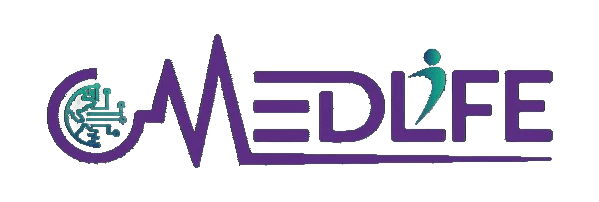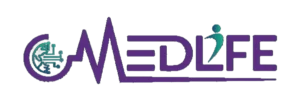Medical coding and billing specialists play a vital role in the healthcare industry, ensuring that medical procedures, diagnoses, and patient care are accurately documented and billed for reimbursement. With healthcare continuously evolving, professionals in this field must possess a unique blend of technical skills, soft skills, and personal qualities to succeed.
Whether you’re just starting your career in medical coding and billing or you’re looking to enhance your skills, this comprehensive guide covers the 10 essential abilities you must master to become successful in this critical field. With these skills, you can boost your efficiency, reduce errors, and help healthcare providers stay financially healthy. Let’s dive in!
1. Attention to Detail
In medical billing and coding, accuracy is paramount. Even a small mistake in coding or billing can lead to significant issues, including claim denials, delayed payments, and possible legal ramifications. Medical coders and billers must be detail-oriented and precise, ensuring that every diagnosis, procedure, and medical service is correctly documented and billed. Mastering this skill will minimize errors and keep your practice’s revenue cycle running smoothly.
2. Strong Understanding of Medical Terminology
Medical coders and billers must be fluent in medical terminology to effectively interpret patient records, diagnoses, and procedures. A solid understanding of terms related to anatomy, diseases, treatments, and medications ensures that the correct codes are used. Coders and billers frequently work with complex medical language, so this knowledge is vital for success. Studying anatomy and physiology, along with specialized medical terms, is a great way to stay ahead in the field.
3. Proficiency with Coding Systems (ICD-10, CPT, HCPCS)
Understanding coding systems is the foundation of any medical coding career. ICD-10 codes are used for diagnosing conditions, while CPT codes are used to document medical procedures. HCPCS codes are essential for supplies and services not covered under CPT codes, such as durable medical equipment. Medical coding specialists must be proficient with these systems, continually learning and adapting to updates and changes in healthcare regulations.
4. Analytical Skills
Medical coding and billing professionals must be able to analyze patient records and insurance claims to ensure that all information is accurate and complete. This skill involves reviewing medical documentation, identifying discrepancies, and ensuring the proper codes are used. Analytical thinking helps resolve billing issues, correct coding errors, and streamline the claims submission process.
5. Knowledge of Health Insurance Policies
Medical billing specialists need to understand the intricacies of various insurance policies to accurately submit claims for reimbursement. They must be familiar with the types of insurance plans (e.g., Medicare, Medicaid, private insurance) and their respective coverage details. Knowledge of how insurance companies handle claims, including reimbursement rates, co-pays, and deductibles, is essential for timely and accurate billing.
6. Time Management Skills
Medical billing and coding can be a fast-paced, deadline-driven job, with multiple claims needing to be processed daily. Strong time management skills are critical for meeting deadlines and managing the workload efficiently. Medical billers must prioritize tasks, handle urgent issues promptly, and maintain focus during busy periods to keep the billing process moving smoothly.
7. Communication Skills
Despite working with numbers and codes, medical coding and billing specialists must communicate effectively with healthcare providers, insurance companies, and patients. Clear communication helps resolve billing issues, clarify medical records, and ensure that patients understand their bills and insurance coverage. Strong verbal and written communication skills are essential for navigating complex billing and coding situations.
8. Problem-Solving Abilities
As a medical billing or coding specialist, you’ll inevitably encounter billing disputes, denied claims, and other challenges. To resolve these issues, problem-solving skills are crucial. This involves identifying the root cause of the problem, researching solutions, and working with insurance companies, healthcare providers, or patients to resolve the issue. Being proactive and solution-oriented will help keep the revenue cycle on track.
9. Customer Service Skills
Medical billers and coders often interact with patients who may be confused about their bills or the status of their insurance claims. Empathy, patience, and a customer-first approach can improve patient satisfaction and help resolve disputes. These skills are critical when dealing with frustrated or confused patients, ensuring they feel heard and supported while maintaining professionalism.
10. Adaptability and Continuous Learning
Healthcare is an ever-evolving field, and so is medical coding and billing. New codes, insurance regulations, and technologies are frequently introduced, so medical coding specialists must remain adaptable and committed to continuous learning. Attending workshops, enrolling in certification courses, and keeping up with the latest updates in coding and billing practices will ensure you remain a competitive and effective professional in the field.
Conclusion
Medical coding and billing specialists are the backbone of the healthcare reimbursement system, ensuring that providers are compensated for their services and that patient data is accurately recorded. To excel in this field, it’s essential to master both technical skills (such as coding and billing software) and soft skills (like communication and time management). With these 10 skills, you can improve your accuracy, efficiency, and effectiveness as a medical coding and billing specialist, positioning yourself for success in this rewarding career.


